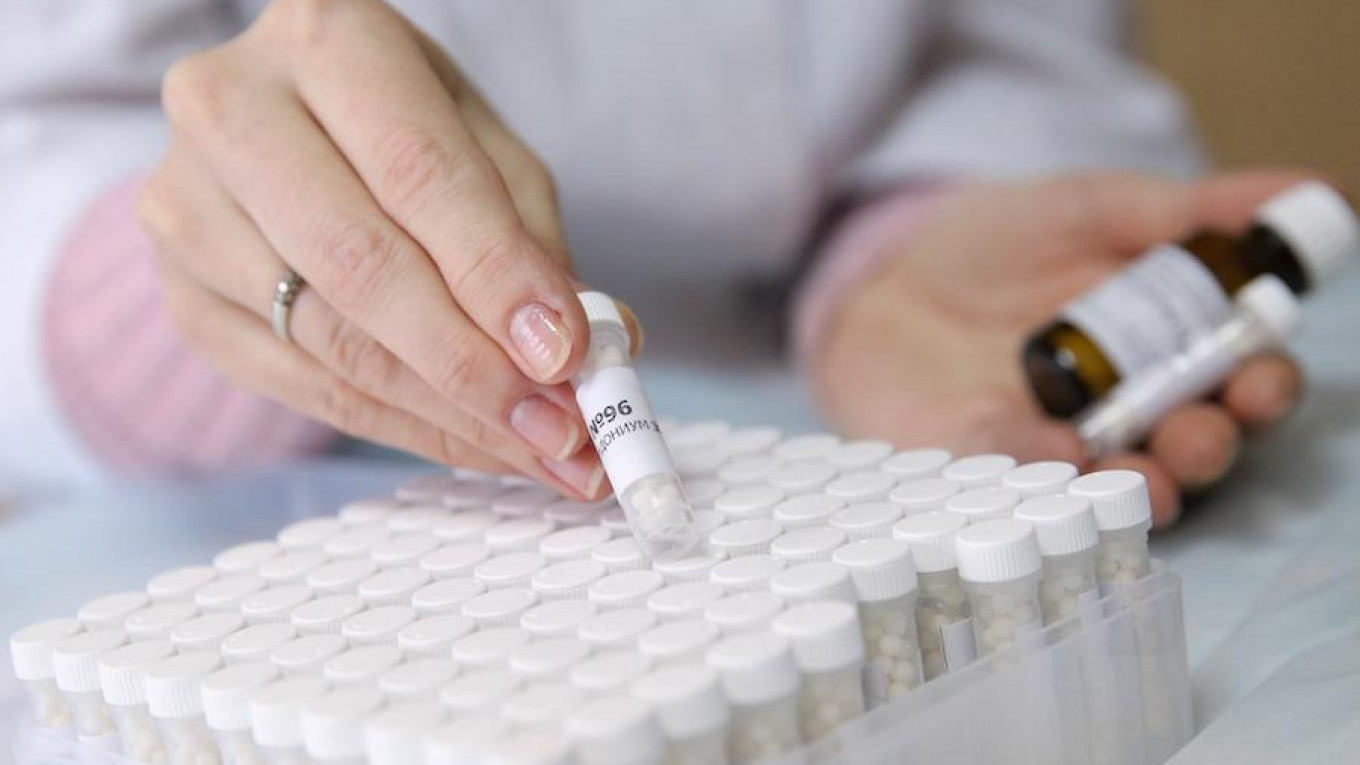Russians are split over plans to ban the use of homeopathy in government hospitals, a survey by state-run pollster VTsIOM has revealed.
Russia's Academy of Sciences (RAS) labelled homeopathic medicine as "a health hazard" last week after a special commission looked into the treatments. The organization is now petitioning Russia's Ministry of Health to abandon the use of homeopathic medicine in the country's state health clinics.
According to VTsIOM data, 46 percent of Russians support the ban, with another 46 percent coming out against it.
Just under a quarter of respondents — 23 percent — said they had used homeopathy in the past, either to treat themselves or family members. Of those who used the treatment, 67 percent said it was effective “at least some of the time.”
Half of respondents did not know what homeopathy was, with 17 percent having never heard the term before.
The VTsIOM survey was carried out by telephone between Feb. 8-9, 2017 with 1,200 people across Russia. The margin of error did not exceed 3.5 percent.
A Message from The Moscow Times:
Dear readers,
We are facing unprecedented challenges. Russia's Prosecutor General's Office has designated The Moscow Times as an "undesirable" organization, criminalizing our work and putting our staff at risk of prosecution. This follows our earlier unjust labeling as a "foreign agent."
These actions are direct attempts to silence independent journalism in Russia. The authorities claim our work "discredits the decisions of the Russian leadership." We see things differently: we strive to provide accurate, unbiased reporting on Russia.
We, the journalists of The Moscow Times, refuse to be silenced. But to continue our work, we need your help.
Your support, no matter how small, makes a world of difference. If you can, please support us monthly starting from just $2. It's quick to set up, and every contribution makes a significant impact.
By supporting The Moscow Times, you're defending open, independent journalism in the face of repression. Thank you for standing with us.
Remind me later.






